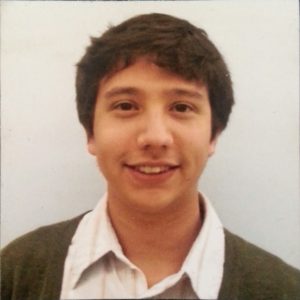 This post was written by Javier Garibay, who received a Student & New Professional Fellowship to attend the 2019 DLF Forum.
This post was written by Javier Garibay, who received a Student & New Professional Fellowship to attend the 2019 DLF Forum.
Javier is currently serving as the Dance Preservation and Digital Projects Librarian at the University of Southern California in Los Angeles, California. He received his M.L.I.S. at the University of California, Los Angeles in 2015. Javier completed his undergraduate work in Politics and Latin American and Latino Studies at the University of California, Santa Cruz. He was selected as an ALA Emerging Leader in 2018 and was selected for the New Professional Programme by the International Council on Archives in 2017. Within librarianship, his interests include digital libraries, archives, and outreach.
The Digital Library Federation Forum was the first conference I ever attended that allowed me to feel the pulse on what is happening in the field of Digital Librarianship. This conference gave me the opportunity to meet new colleagues, share my personal experiences, and hear innovative strategies and ideas that are being implemented around the country. Although panels varied greatly in scope, one common theme that I identified in several of the presentations I attended was the effort to incorporate ethics and humanity into various aspects of the development of digital collections. In the last four years that I have been a librarian, this is one trend that I have seen gradually being discussed more often and presented at conferences.
I particularly appreciated presentations such as “Ethical Digital Libraries & Prison Labor,” as well as the “Documenting Detention” presentation in the “ethics + community archives” panel. I highlight these two presentations in particular as some that critically observed both the invisible labor involved in the archival process, but also the context of the material itself. Weeks after the conference, the question of safety for migrants while building a collection in real-time raised in the “Documenting Detention” presentation is something that I still ponder. Further if it wasn’t surprising enough to discover that libraries use prison labor for digitization, the ethical dilemmas that arise from such practices rattles the core of values that ALA promotes regarding access and social responsibility. While it is interesting to hear about completed projects or those in development, it demonstrates the thoughtfulness that librarians are putting into their work when they call into question processes and the substance of collections.
As a Forum Fellow at this year’s conference, I was fortunate to have a mentor with whom I had previously worked, and who was willing to provide guidance and listen to the challenges I have faced during my time in librarianship. This bolstered the experience I had at the conference, sharing with my mentor some of my interests with regards to digital librarianship and getting suggestions for which panels to attend. Beyond the conference, I received advice from my mentor about getting involved in committees at my home institution, both in and outside of the library. I found this aspect of my time at DLF extra helpful, particularly because my mentor has been in the field longer than I have, and was able to speak from personal experience about what has helped her advance in the field. I plan to continue this relationship, turning to my mentor for further guidance as I progress through librarianship.
All in all, an experience like that at the DLF Forum was refreshing. While we often prioritize meeting deadlines and quantitative assessment of our work, this conference was a reminder that we also need to think insightfully and critically of our own practices and what it means outside our workflow’s context. I will continue thinking of my own work in similar ways, always applying an analytical lens to push the boundaries of my labor.
